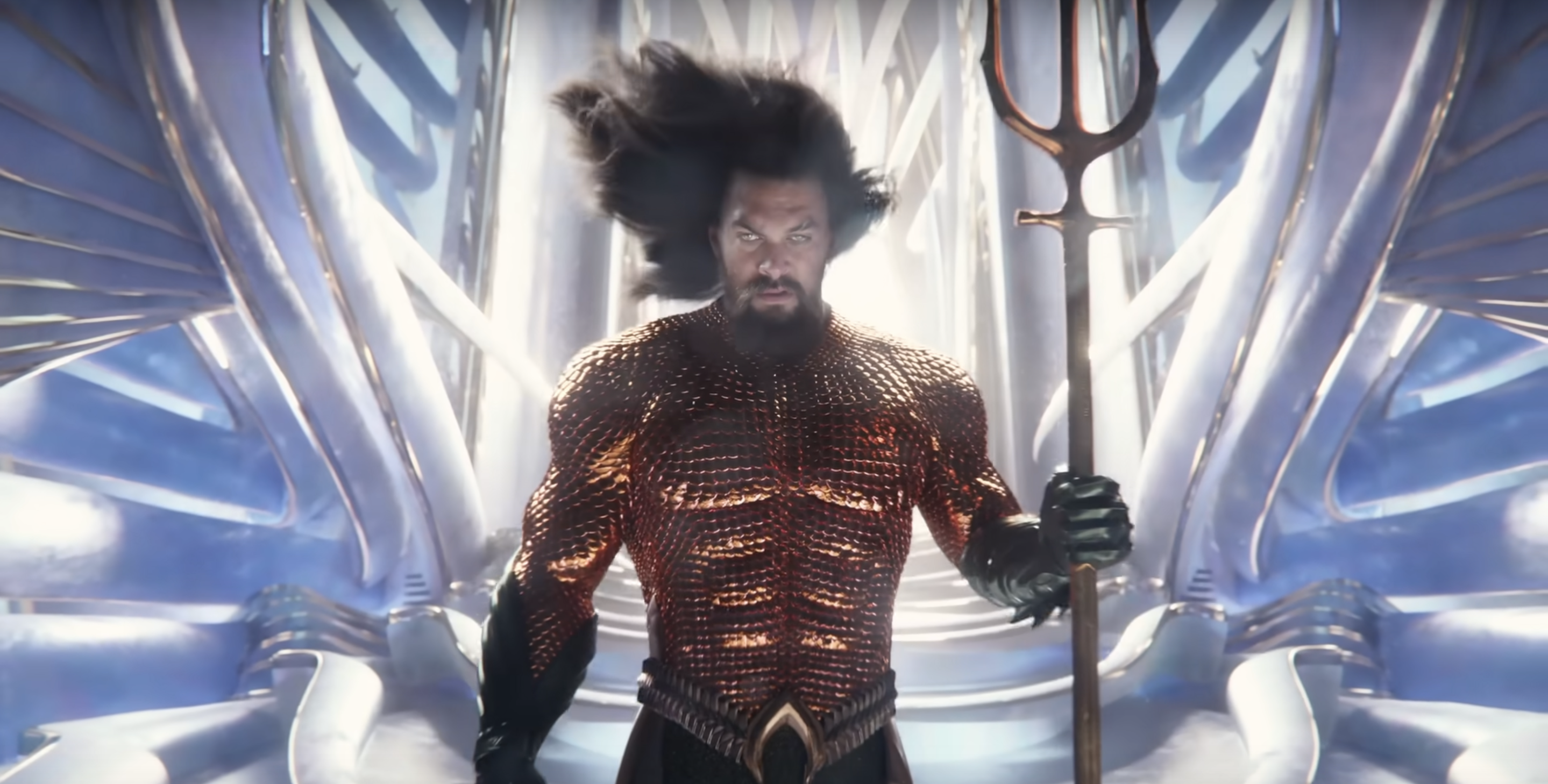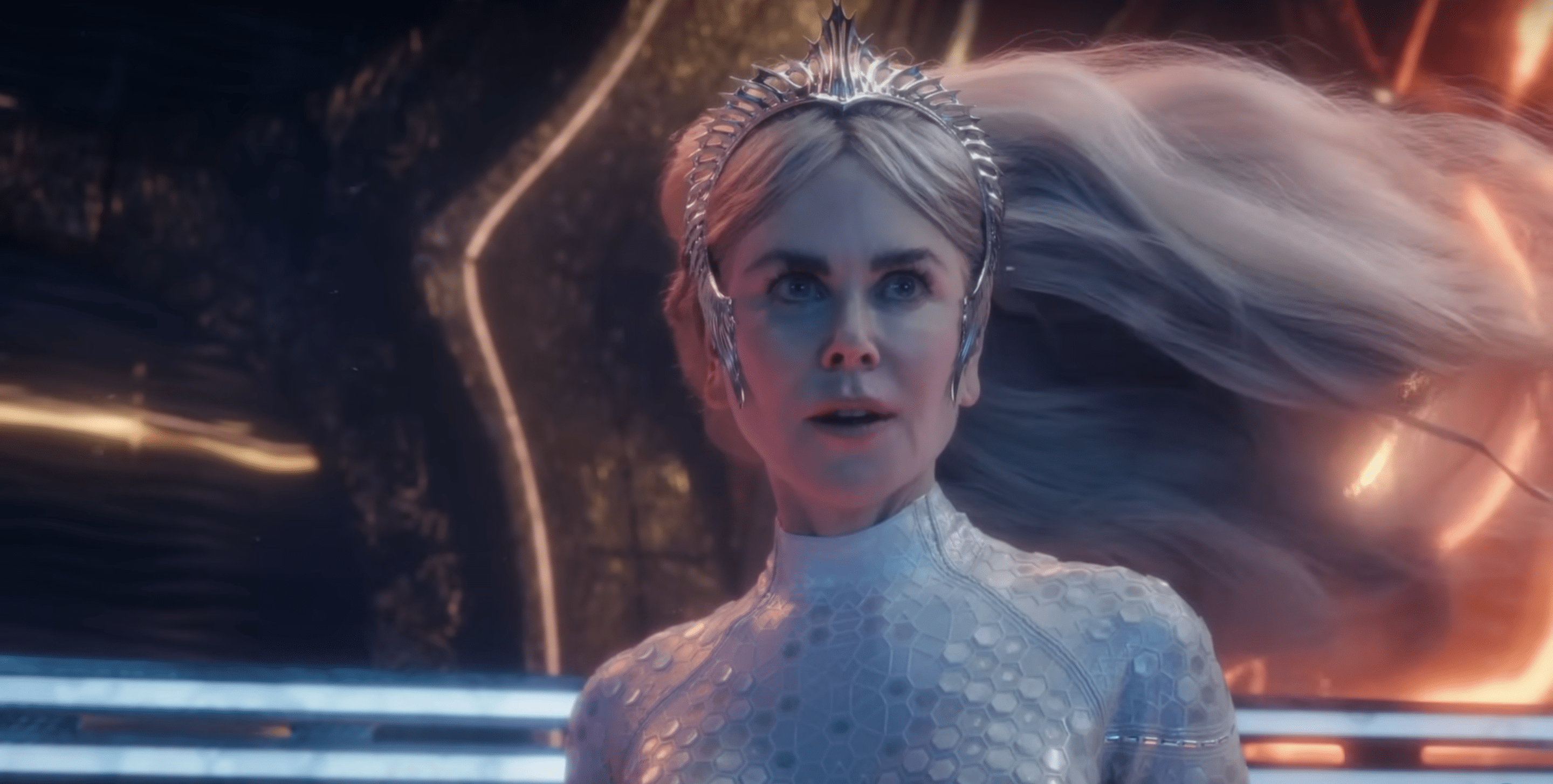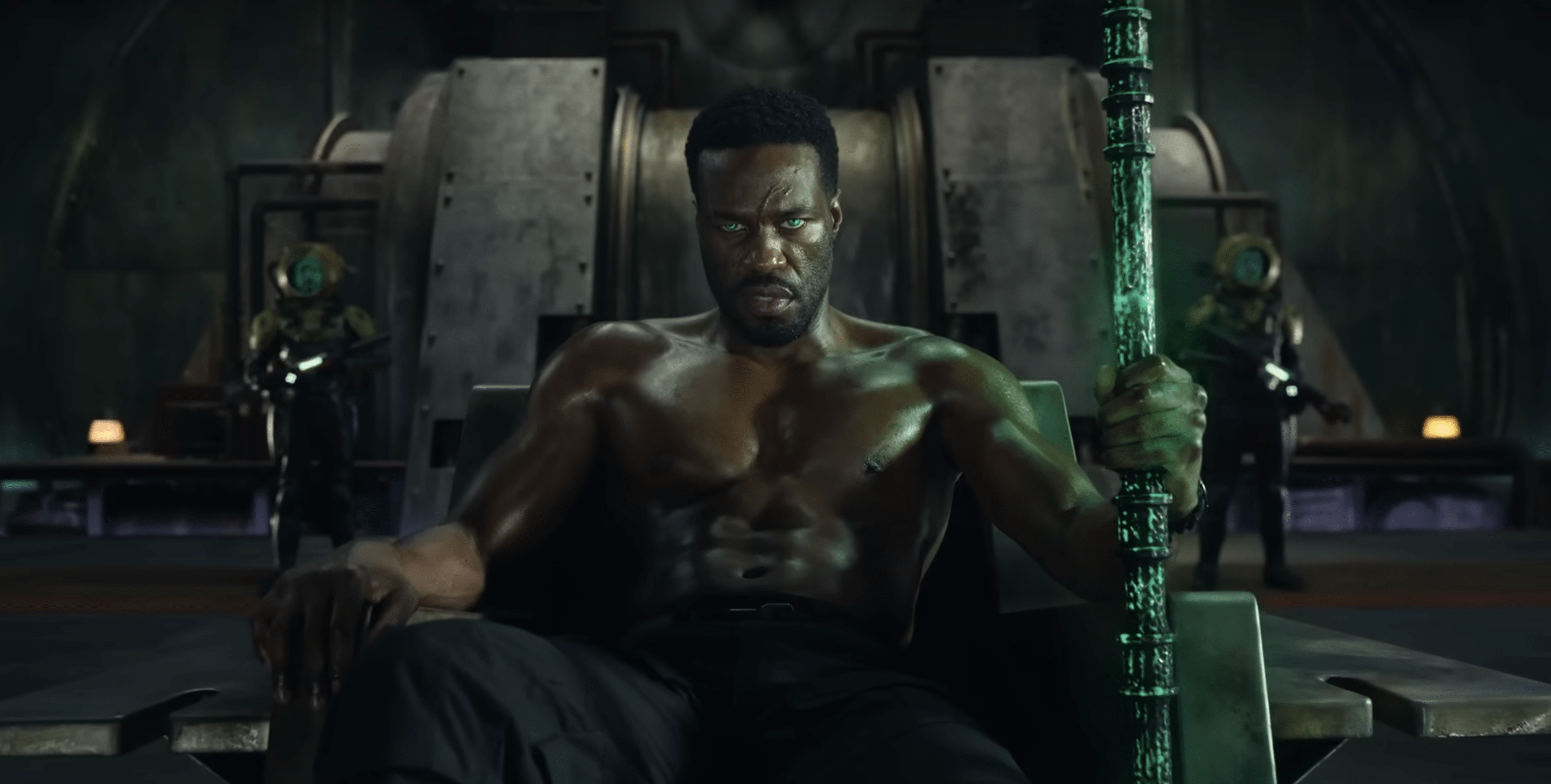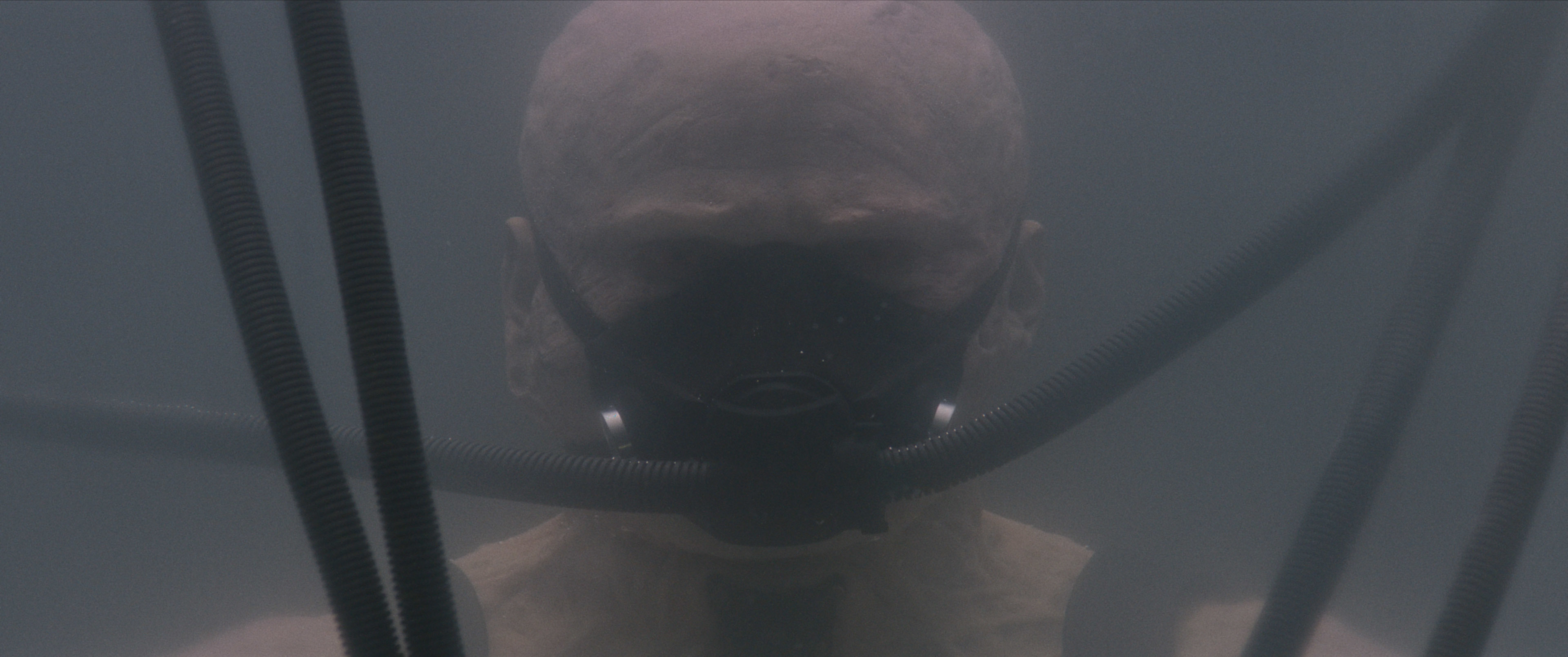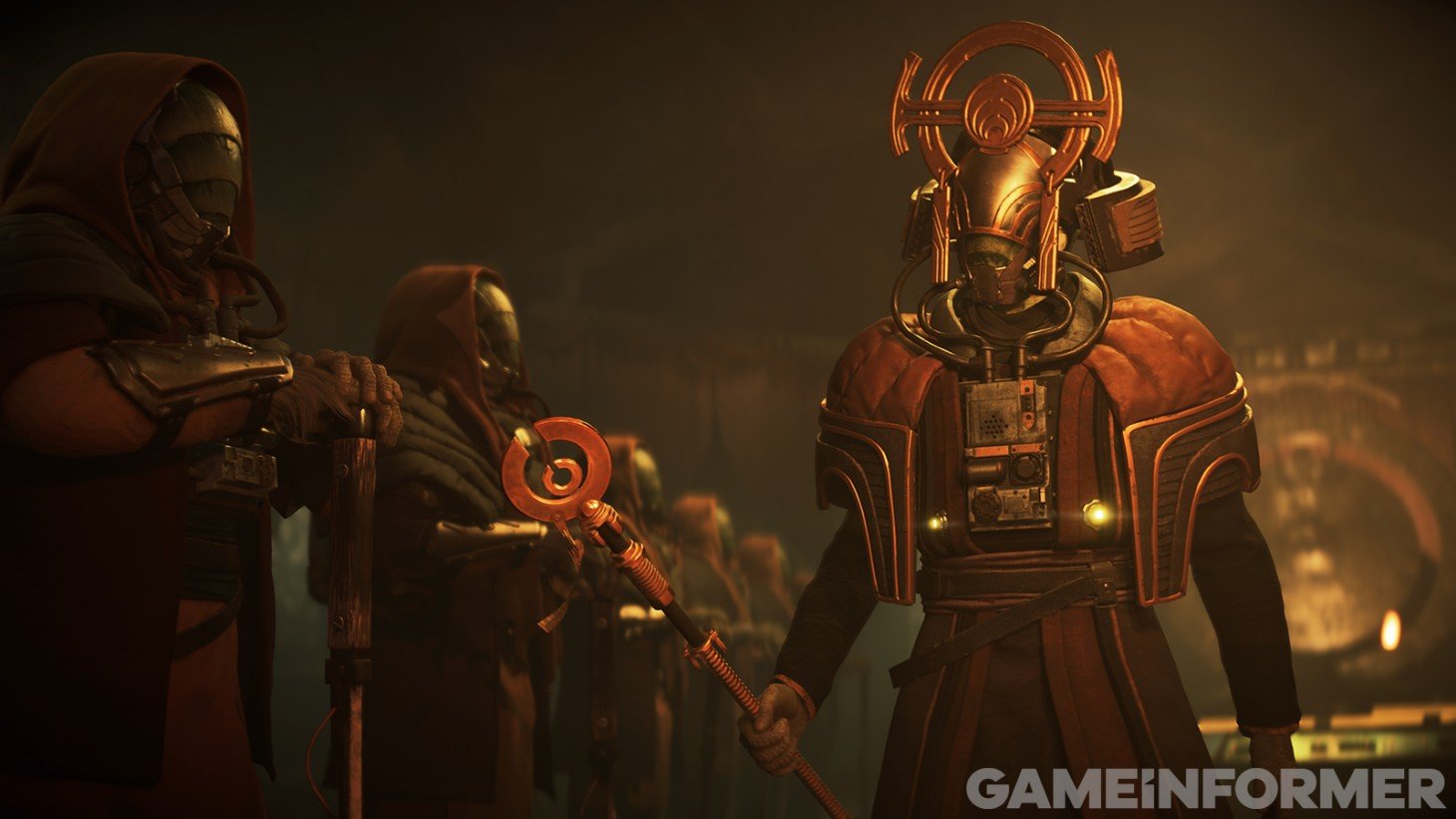‘Aquaman and the Lost Kingdom’ Review: James Wan’s Inferior Sequel Puts an Unceremonious End to the DCEU
It’s been 5 years since the first Aquaman blew the box office out of the water and splashed $1 billion over Warner Bros.’ walls and now, the sequel is here to put an end to a 10-year chapter on the DC franchise. For all the drama that’s been surrounding this movie over the past few months and even years, the truth is that Aquaman and the Lost Kingdom is just a step down from the mindless fun adventure that the first one was, not the nearly-unwatchable experience that recent superhero movies have been from the other side of the road.
The bar is not too high this year for movies from this genre, and though James Wan‘s flawed sequel starts off with a laughingly bad recap of the first movie (an example of the movie yielding to its worst impulses: being so much cheesier than it actually intended to be), it still packs in more entertaining sequences than I expected going in, and Wan is still able to keep us satisfied even if the story isn’t there and his imagination is all but run dry when compared to the 2018 film.
The success of the first movie came from the fact that it struck the perfect tone of being exactly as campy as it wanted to be, and not even attempting to excuse itself. The sequel never really reaches any of the highs of the first one, and sometimes even hesitates in striking that specific tone of knowing exactly what they are doing: instead of featuring more octopus playing the drums, now they make a few references to it, and even include the octopus itself in a larger role; rather than providing us with a sense of wonder at the underwater world of Atlantis, Aquaman and the Lost Kingdom tries too little to make its climate change message work within the narrative. The film is sunk by its weird clash of tones that can’t keep the dumb plot afloat. Yet Wan still managed to include some fun setpieces and once the narrative gets going after the clunky first 15 minutes, it’s better edited and paced than most movies in the genre from recent memory.
Jason Momoa is back as Arthur Curry, aka Aquaman/King of Atlantis, and if the actor didn’t know he wouldn’t be returning to the role when he started shooting, it surely doesn’t look that way. Momoa’s rock-and-roll persona takes over whatever was left of a character in the previous film, and doesn’t even apologize for it. He has an emotional hook this time around via his newborn (who strangely doesn’t age that much after a five-month time jump), but the script is more focused on explaining the Lost Kingdom and ancient Atlantian mythology than it is on giving him an actual arc and a scene for him to show some acting chops.
Amber Heard is also back as Mera, now Arthur’s wife and mother of the child, and despite what reports might suggest, she’s in it for a lot more than I expected. Whether there was a previous draft of the script with more Mera in it, I don’t know, but while being written out of the second act, she has key scenes in the first and third acts, and in fact, her role towards the final moments of the film could have been much larger. Again, I don’t know where the studio interfered here to act on Heard’s legal issues, but the movie could have benefitted from more Mera in key moments of the third act — for reasons I won’t get into.
Also back for the sequel is Patrick Wilson as Arthur’s brother Orm, who gets rescued in the second act once Aquaman realizes the only chance he has to defeat Black Manta (Yahya Abdul-Mateen II) is by reuniting with his estranged half-brother. Orm is the only character in the film with something resembling an arc, and the only relationship that is given some weight is his and Arthur’s — even if David Leslie Johnson-McGoldrick‘s script barely passed the bar on that one.
In the story, Black Manta gets a hold of an ancient trident which grants him superpowered abilities, with the only payback that he must refine some mysterious green element that Nicole Kidman explains to us is actually harmful to the atmosphere because it has greenhouse gases (I think?). The point is, there’s a giant volcano emitting a column of green smoke and James Wan doesn’t even attempt to hide the infinite number of visual homages to Mordor and Return of the King. Will our heroes be able to reach it in time before global warming, a threat that took decades to have a day-to-day impact on our lives, destroys the planet within a few days of Black Manta throwing dangerous gases into the air?
Say goodbye to the old “sequels have to go bigger” mantra because even though there’s a global threat in The Lost Kingdom, the scale of the third act is not even comparable to the massive and balls-to-the-wall battle that culminated the first movie. That’s not a critique, though — in fact, Aquaman and the Lost Kingdom works best when it’s focused on Arthur and Orm going from enemies to brothers. Wan is still able to infuse it with enough energy to keep the second act from winding down, yet is clearly a lot more tired than he was when he made the first movie. Case in point: the amazing one-take fight scene that Nicole Kidman’s character had at the beginning of the first movie is now turned into a half-cooked underwater fistfight between her and a couple of CGI creatures before we cut away to somewhere else on the battlefield.
In the end, it’s not about topping the previous film, but rather understanding its strengths and trying to improve on its flaws. Instead, it seems like Wan figured out too late which was which on the first one, and hesitated when penning the second one, to the point where he mixed them up. The key was always to bring more visual camp, not to give Jason Momoa stupid lines to narrate.
Aquaman and the Lost Kingdom is currently in theaters worldwide.
Miguel Fernández is a Spanish student that has movies as his second passion in life. His favorite movie of all time is The Lord of the Rings, but he is also a huge Star Wars fan. However, fantasy movies are not his only cup of tea, as authors like Scorsese, Fincher, Kubrick or Hitchcock have been an obsession for him since he started to understand the language of filmmaking. He is that guy who will watch a black and white movie, just because it is in black and white.

